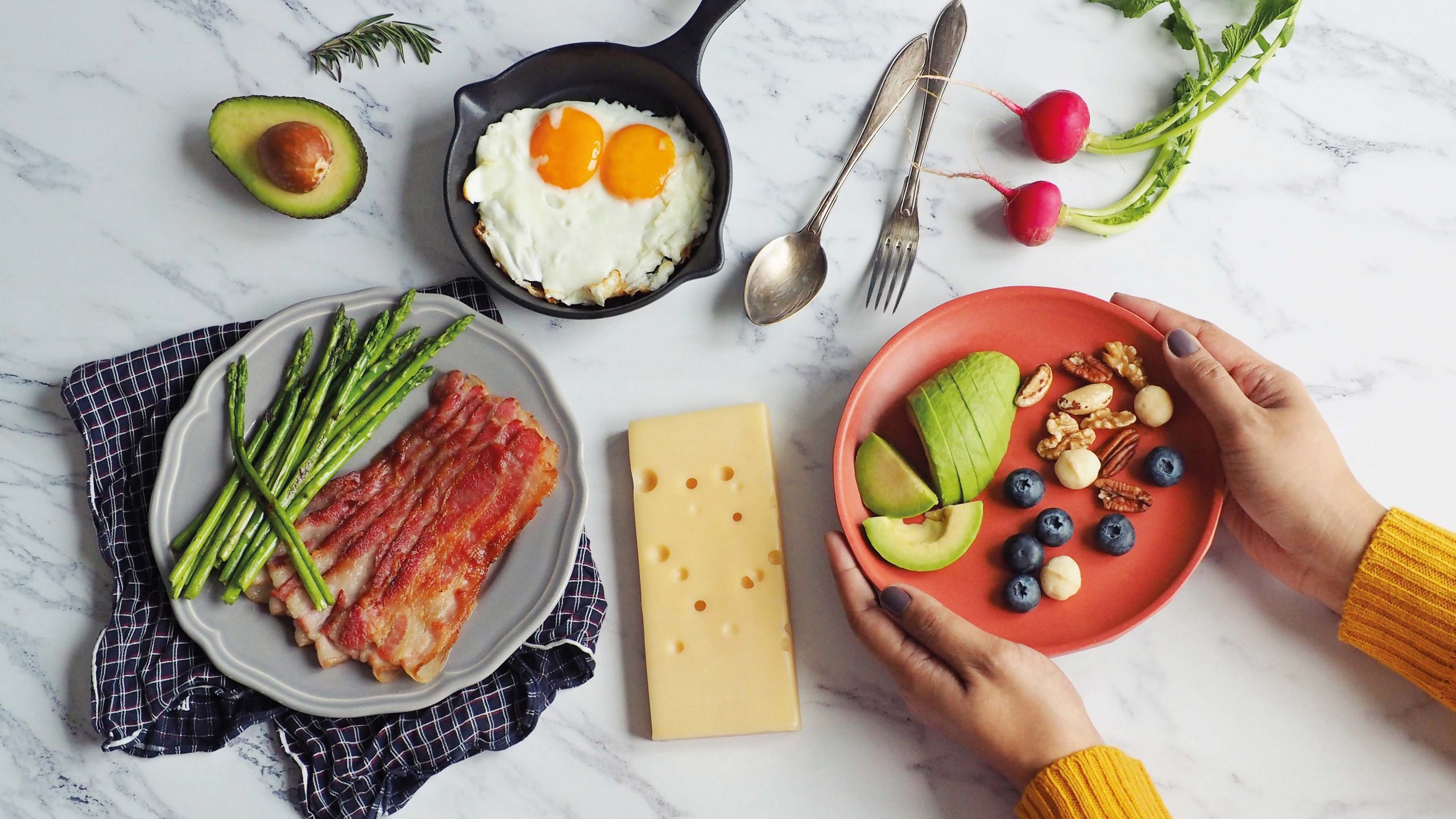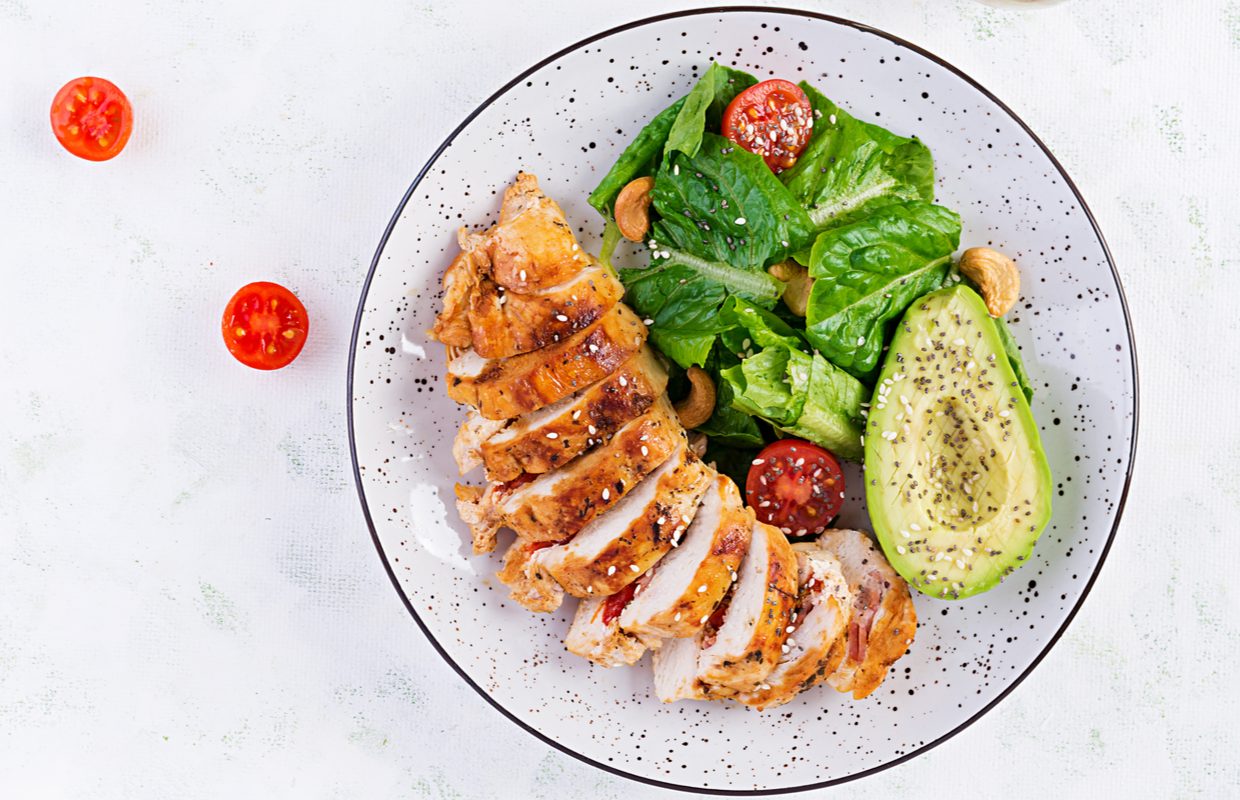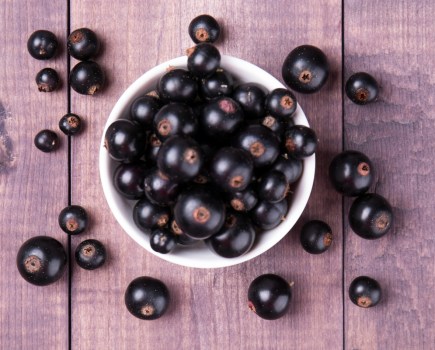Functional nutritionist, author and ketogenic expert Pauline Cox MSc shares some top tips for beginners who are hoping to try the keto diet for weight loss and its potential health boosting-benefits. Find her at instagram.com/paulinejcox…
The ketogenic diet is growing in popularity as a tool for weight loss and its potential health boosting-benefits, but does it really work and is there a right and wrong way of “going keto”? And what steps should beginners take when trying keto for the first time?
What is keto?
Keto is a metabolic state of burning fat for fuel rather than carbohydrates. That fat can be the fat from your food, or the fat on your body. When you burn fat for fuel, bioactive compounds called ketones are released, which are used to make energy and can also increase metabolic rate, reduce inflammation and reduce cravings.
Whilst we are hardwired to burn fat for fuel, in a world of constant carb consumption, the art of burning fat is fast becoming lost. Our appetite for breads, pasta, biscuits and buns leads to rising levels of insulin, meaning our waistbands are expanding. But it’s important to note that the ketogenic diet is not a quest to load upon lard; it’s about going low carb enough to teach your body to burn fat. This is crucial. When you lower your carbohydrate consumption, insulin levels lower.
What is insulin resistance?
Insulin is a fat-storing hormone and levels creep up when a condition called insulin resistance sets in. This comes from years of eating a high sugar, high carbohydrate diet. We’re talking breakfast cereals, toast, pastries, biscuits, snack bars, sandwiches, cakes, pasta, crackers…the carbs conveyor belt goes on. This continued presence of insulin in the bloodstream blocks your ability to burn fat effectively.

How to get started with the keto diet as a beginner
Firstly, it’s important to know you are unique. There is no one size fits all when it comes to success on a keto diet, especially for beginners. Those who are highly active, enjoy long-distance or endurance sporting activities may demand more starchy veggies as part of their diet. Age, health status, weight, medical history, insulin sensitivity and sex also impact dietary requirements.
When it comes to trying keto as a beginner, it’s about making small changes and enjoying eating healthy, wholesome and delicious food that will help you balance metabolic hormones and improve your fat-burning abilities.
20%… that’s how much of your energy is taken up by your brain, and yet your brain only weighs two per cent of your body weight! If energy needs aren’t met, brain fog, forgetfulness and even depression and anxiety can ensue. Ketones are the bioactive compounds that result from burning fat. Ketones can increase alertness, cognitive function and memory. A ketogenic diet may improve your mood by increasing the feel-good neurotransmitter, GABA.
6 keto diet tips for beginners
1. Gradually lower your carb intake
As you begin your keto journey, focus on lowering your carbohydrate intake, which will allow your body to take advantage of its natural ability to burn fat. Lowering carbs doesn’t mean no carbs at all though! It means becoming conscious of your carbs. Limit your intake of sweets, fruit juices, pastries, pasta, and breads, and instead choose low-carb alternatives.
If the thought of ditching the bread has you breaking out in a cold sweat, fear not, there are many delicious, low-carb alternatives packed with gut-boosting fibre that taste just like the real thing.
2. Time your meals
What you eat and when you eat can make a big difference to the success of your keto journey as a beginner. Creating an 8-hour window for eating can significantly increase fat-burning, improve insulin sensitivity and stabilise blood sugar.
3. Portion out your plate
Filling half your plate with colourful veggies will benefit your gut microbiome and provide a valuable source of antioxidants, fibre, vitamins and minerals. Add some quality protein and moderate amounts of healthy fats from wholefoods such as eggs, avocados, wild fatty fish, coconut, butter, ghee, cheese and olives.

4. Try sauerkraut to improve your gut health
The bacteria in your gut can either work for you or work against you, depending on what you eat. Those trillions of bugs in your intestines play a key role in digestion, support immune function, modulate inflammatory levels, as well as, wait for it… affect your weight! That’s right, you can have a slimming microbiome or an obesity-causing microbiome.
Ensuring you have a diverse, healthy gut microbiome is essential for overall health. Adding a daily dose of sauerkraut is a great way to support your beneficial gut bugs. Sauerkraut is fibre rich, full of probiotics and is low carb, meaning it’s a great ingredient for beginners following a keto diet.
5. Stop snacking
Snacking throughout your eating window will perpetuate the blood sugar rollercoaster, stimulating the release of insulin. If you fancy some dark chocolate or a low-sugar dessert, enjoy one immediately after your meal, as the fibre within the meal will help minimise the blood sugar spike.
6. Choose high-quality protein
Protein provides the building blocks for healthy skin, strong bones, hair and muscles, to name a few. Protein also stimulates satiety hormones, helping to prevent over-eating. Wild fish, pasture-raised meats, free-range eggs, cow, sheep and goats’ cheese are excellent sources of protein








